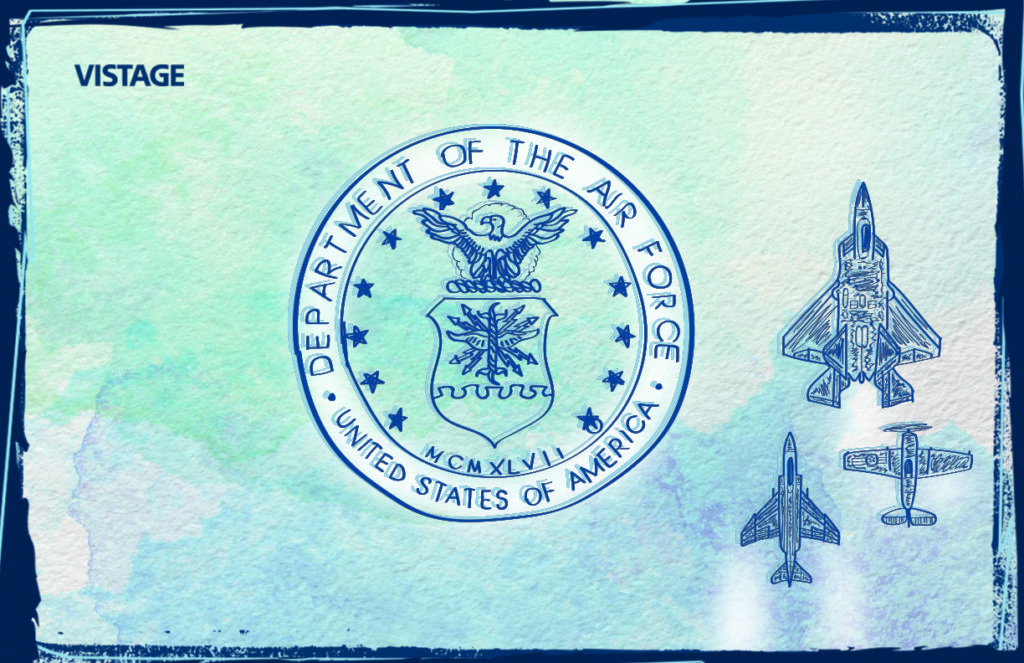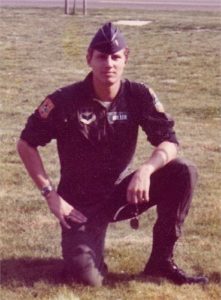Lessons in leadership from the U.S. Air Force

Randy Miller’s leadership mantra is ‘attitude is everything.’ He comes by it honestly.
Back in 1975, Miller had just arrived as a First Lieutenant at RAF Bentwaters in England as part of his first F4 Unit. The skies were overcast and stayed that way through the whole winter. The weather wasn’t the only thing that was foul.

“My commander was a negative person whose attitude was so bad, so demanding, that people would avoid him at all costs,” he said. “Not the most efficient way to lead.”
The negative leadership style had swift and terrible consequences. “Because of his bad attitude, we failed a NATO inspection,” Miller recalled. “He was relieved of his command the next week.”
Miller would soon welcome a more positive role model. The replacement was Colonel David Goodrich.
“He was just the exact opposite,” Miller said. “Colonel Goodrich made people feel good. He was always positive. His men would go out of their way to be in his presence.”
Aside from Goodrich’s command, nothing else about the F4 Unit changed. “We passed the next inspection,” Miller recalled. “Colonel Goodrich made General, and the Wing Unit was better off.”
For Miller, the example set by his commanding officer is perennial and transcends the boundaries of the United States Airforce. “If you get right down to it, the Unit is a business organization,” he said. “About a billion dollars of resources are controlled by the wing commander: 72 fighter jets, electronics, all the equipment. The wing commander is judged by his ability to keep the unit running and maintain combat efficiency. Do you think a commander could do that if he has a negative attitude and everyone knows it?”
“Colonel Goodrich gave credit where it was due. He praised more than he criticized. He kept a smile on his face.” Miller served under him for 9 months. Colonel Goodrich became Brigadier General Goodrich and served at the Pentagon.
Miller carries his former leader’s influence with him still. “If you can make people feel good and feel good about what they are working on, then they will want to do good by you, he said. “They feel like they are valued.”
Randy Miller served for more than 20 years in the United States Air Force, retiring as a Lieutenant Colonel. With Vistage Worldwide since 2002, Randy is a Vistage Chief Executive Peer Advisor Group chair in Austin, TX. As a chair, he leads his groups in increasing their individual effectiveness while enhancing their lives. Thank you for your service, Randy.
More lessons from the United States Armed Forces:
Stephen Johnson of the U.S. Navy![]() talks about how a CEO commands the morale of his team.
talks about how a CEO commands the morale of his team.
Mike Malone of the U.S. Marine Corps ![]() recalls how watching a ship get underway informed his idea of teamwork.
recalls how watching a ship get underway informed his idea of teamwork.
Bob Slate’s personal essay ![]() memorializes his former U.S. Coast Guard commander in the Antarctic.
memorializes his former U.S. Coast Guard commander in the Antarctic.
Richard Carr recalls![]() a three-star general whose example he has followed through his own career.
a three-star general whose example he has followed through his own career.
Category : Leadership

